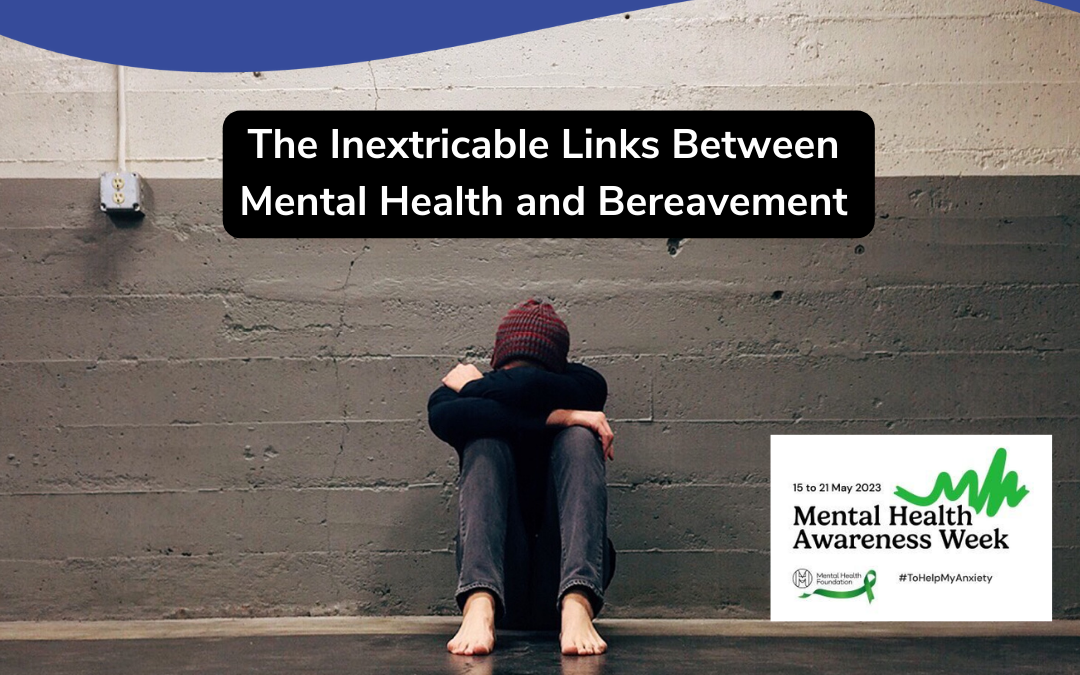The Inextricable Links Between Mental Health and Bereavement – Mental Health Awareness Week
Mental Health Awareness Week serves as a poignant reminder of the profound impact that mental health has on our lives. It is a time to reflect on the various factors that influence our emotional well-being, including one of the most challenging experiences we may face: bereavement. The loss of a loved one can have a profound impact on our mental health, and understanding the intricate connections between the two is crucial for supporting individuals navigating the grieving process.
The Emotional Impact of Bereavement
We know at Edward’s Trust that bereavement is a deeply personal and unique experience, as everyone copes with loss in their own way. The emotional impact of bereavement can manifest in various forms, such as intense sadness, anger, confusion, guilt, and even relief. These emotions can be overwhelming, and individuals may find it challenging to adapt to life without their loved one.
Grief and Mental Health
Grief, a natural response to loss, is a complex emotional process that can have a profound impact on mental health. While grief is a normal and necessary part of healing, it can sometimes develop into more severe mental health conditions, such as prolonged grief disorder or major depressive disorder. The loss of a loved one can trigger a range of emotional and psychological reactions, including:
Depression: Grief can lead to feelings of intense sadness, hopelessness, and a loss of interest in activities once enjoyed. These symptoms may overlap with those of clinical depression, making it challenging to distinguish between the two.
Anxiety: Bereavement can generate anxiety symptoms, including excessive worry, panic attacks, and feelings of restlessness. The fear of further loss or the need to assume new responsibilities can contribute to heightened anxiety levels.
Post-Traumatic Stress Disorder (PTSD): Traumatic losses, such as sudden or violent deaths, may lead to the development of PTSD. Flashbacks, nightmares, and hypervigilance are some of the symptoms experienced by individuals struggling with traumatic grief.
Complicated Grief: Sometimes, the grieving process becomes prolonged and complicated, making it difficult for individuals to move forward. Symptoms include persistent yearning, difficulty accepting the loss, and a profound sense of emptiness. Seeking support from mental health professionals is crucial for those experiencing complicated grief.
You can watch some of our young people talking about what grief feels like to them here.
Here at Edward’s Trust, we recognise the intersection of mental health and bereavement and therefore provide effective support to individuals experiencing loss. All our therapists are qualified, experienced in bereavement support and registered with their appropriate professional body.
In addition to seeking professional help if needed, practicing self-care is also important, such as exercise, proper nutrition, and sufficient rest, getting outside into nature. All these things can contribute to better mental well-being during the grieving process.
During Mental Health Awareness Week and beyond, it is vital to recognise the deep impact that bereavement can have on mental health. In recognition of this this week and for one week only we are running a match-funding campaign called The Big Give. We are raising funds to support our vital bereavement support for young people aged 11 to 24. The funding will provide counselling and wellbeing support to help young people cope with their grief, reduce their anxiety caused by bereavement and therefore have better mental health.
In order to have your donation doubled and enable us to have twice the impact supporting young people through bereavement, you can donate through The Big Give here. Thank you and take care of yourself.

